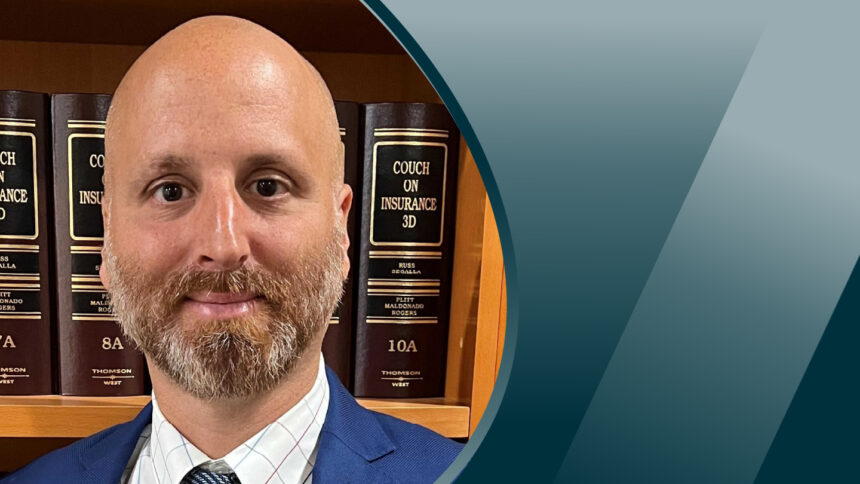
Skilled nursing facilities are required by law to have quality assessment and assurance committees to maintain and improve safety and quality in their facilities. The documents created and used by the committee should be privileged from discovery in litigation. These materials, which contain a wealth of a facility’s self-critical analyses and improvement plans, are enticing to plaintiffs and have resulted in many court hearings across the country as to their discoverability.
This has created two very different approaches, the so-called “Missouri” and “New York” rules. Understanding these two interpretations is essential in determining whether a SNF’s materials might be protected by QA.
At its most basic, the quality assurance privilege means documents created in furtherance of improving the quality of resident care at a nursing home facility should not be discoverable in litigation. The privilege comes from the Federal Nursing Home Reform Act (“FNHRA”), which requires that all nursing home facilities maintain a certain standard of care for their residents.
The FNHRA also mandates that facilities maintain a quality assessment and assurance committee to identify and develop plans to correct deficiencies in the quality of care provided to residents. The FNHRA creates the federal quality assurance privilege (FQAP) that “A State or the Secretary may not require disclosure of the records of such committee except insofar as such disclosure is related to the compliance of such committee with the requirements of this subparagraph.” See, 42 U.S.C. 1392r(b)(l)(B), concerning Medicare requirements, and 42 U.S.C. § 1396r(b)(1)(B), which concerns Medicaid requirements.
However, many states also have their own QA statutes. The result is that there are different standards for disclosure depending on your particular jurisdiction.
Missouri Rule – Narrow Interpretation
The narrow approach, the so-called “Missouri Rule,” generally holds that only documents actually created by the quality assurance committee are protected by the quality assurance privilege. This interpretation comes from State ex rel. Boone Retirement Ctr., Inc. v. Hamilton, which involved a subpoena for any and all quality assurance records, reports and/or attachments reflecting materials generated by or presented to the defendant’s QA Committee.
The Court rejected the defendant’s attempts to protect the QA materials, holding that records of the QAPI committee extended only to the committees’ own materials. Privilege protection was not extended to reports submitted to the committee by any other source. The Missouri Rule has been adopted in other states, such as Pennsylvania and Tennessee. In essence, under the Missouri Rule, documents that are created outside of the committee and submitted to the committee for its review are not protected by privilege. Thus, the FQAP privilege only protected the committee’s own records, minutes, internal working papers, statements and conclusions.
New York Rule – Broad Interpretation
The New York Rule originated in In re Subpoena Duces Tecum to Jane Doe, Esq., where a New York grand jury issued subpoenas seeking records from various nursing home facilities as part of a Medicaid Fraud investigation. The subpoenas requested documents, including incident/accident reports, monthly skin condition and pressure sore reports, monthly weight reports, infection control reports and lists of any facility-acquired infections. The facility argued that all documents sought were protected by the quality assurance privilege.
The New York Court of Appeals determined that some of the requested documents were protected while others were not. For example, the Court held that the monthly skin condition and pressure sore reports, monthly weight reports, and lists of any facility-acquired infections, none of which were required to be maintained pursuant to state or federal regulations, were privileged QA materials. In reaching this conclusion, the Court held that the QA privilege encompassed within its parameters any reports generated by or at the behest of a quality assurance committee for quality assurance purposes. Thus, documents not created by the quality assurance committee itself could still be protected. The New York rule has been adopted in other states, including Georgia, Florida, Alabama and Massachusetts.
Whether a particular court follows the Missouri or New York Rule, a few things are evident from the case law. First, establishing a pathway to privilege requires understanding the existing regulations. The federal QAPI law is quite restrictive, only protecting materials actually prepared by the QA Committee. State law may provide more expansive protections, but this does not mean that the QA Committee itself should be overly inclusive. The importance of delineating the members of the QAPI committee and drawing them from various disciplines within the facility should be self-evident, but what happens when an SNF utilizes outside consultants?
Often, consultants are engaged to evaluate clinical issues and provide guidance on improving quality care measures. These activities can consist of chart audits, actual observation of residents and staff on the unit, and, of course, creating actual reports of their findings. Whether privilege pertains to records compiled by third-party consultants or is limited to the quality assurance committee’s internal records was recently addressed by the Kentucky Supreme Court in Henderson County Health Care Corp. v. Wilson.
There, the facility contracted with consulting nurses to evaluate the facility’s quality of care and provide guidance to the QA Committee on where care could be improved. Plaintiff sought the consultants’ materials. The Court found that the consultants’ reports were privileged under the FQAP, treating the contractor as an agent of the QAPI committee as the nurse consultants were performing a function that would likely be kept in-house in a larger institution. To hold otherwise would be to fail to recognize that it may not be feasible for a small nursing facility to employ, on its own staff, persons with Quality Assurance expertise.
In such a situation, the Court held that the goals of the FNHRA may be best served by contracting out these responsibilities and that contracting for assistance in performing QAPI functions does not inhibit this goal. The reports generated by the nurse consultants employed by the facility and provided to the facility’s QAPI committee were then used by the committee to improve care at the facility, i.e., for quality assurance purposes, and as such, were protected by privilege.
Other pathways to privilege include resisting the urge to combine QAPI with reports of general business matters. While combined reports may be more efficient for facility operations, this type of mixed-purpose use creates ambiguity as to whether privilege applies. For example, a report of a visitor’s slip and fall or a financial report is likely not QAPI. Likewise, resident council minutes, annual emergency preparedness, reports of suspected crimes, lists of transfers, and census information, all of which are specifically required by 42 CFR 483, exist independently of QAPI and are not privileged under FQAP. Ordinary incident reports may not be privileged under FQAP.
The legal system favors disclosure, and courts narrowly construe privileges. Very limited ones, such as attorney-client, work product privilege, spousal privilege, religious privilege, and psychotherapist-patient privilege, are actually recognized. As such, claims of privilege are carefully scrutinized, and the burden of proving that a privilege applies rests on the party claiming its benefit.
Thus, the provider, with the assistance of legal counsel, is charged with the duty of educating the court to better its understanding of the context of why the disputed materials are privileged and, in doing so, a detailed affidavit about the parameters of a given facility’s QA program is necessary. Invariably, courts scrutinize such affidavits for specific information about whether the QA committee directed to be created or actually reviewed the materials for which privilege is asserted. The mere citation of privilege in the abstract will not protect materials from disclosure.
Argument over which approach, the Missouri or New York Rule, is the more reasonable shall continue. As such, facilities should expect continued legal challenges as to their internal review processes and proactively examine them to maximize the available QAPI protections in their jurisdiction.
Mario Giannettino is a partner with the law firm Kaufman, Borgeest & Ryan, LLP. He defends a range of healthcare professionals in civil litigation and regularly publishes and speaks nationally on matters relating to all aspects of healthcare defense. Mario is also recognized by the American Hospital Association as a Certified Professional in Health Care Risk Management.
The information provided in this article does not, and is not intended to, constitute legal advice; instead, all information and content is for general informational purposes only.
The opinions expressed in McKnight’s Long-Term Care News guest submissions are the author’s and are not necessarily those of McKnight’s Long-Term Care News or its editors.
Have a column idea? See our submission guidelines here.




